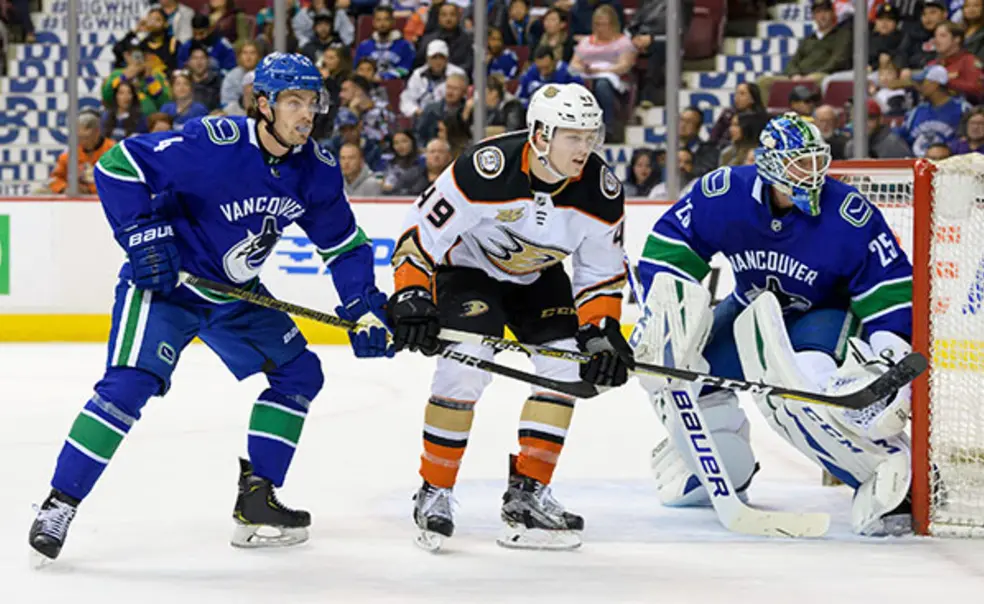Nine minutes into the third period, the Ottawa Senators were scoreless. Then, Dylan DeMelo, a Senators defenseman, intercepted a pass, sending it back the other way. When the puck returned to DeMelo, he flicked it to a Senators forward, who chipped it into the goal.
The forward? Max Véronneau ’19, who scored his first NHL goal just 11 days after his final collegiate game.
This year, the Princeton men’s hockey team sent three seniors to the NHL, the most since the Class of ’92. Véronneau, Ryan Kuffner ’19, and Josh Teves ’19 all signed free-agent contracts and debuted as professionals in March.
Véronneau, Princeton’s all-time points leader, signed with his hometown Ottawa Senators as a forward. He has since played 10 games for the Senators, accumulating two goals and an assist.
Kuffner, Princeton’s all-time leading goal scorer, joined the Detroit Red Wings as a forward, competing in eight games for the Red Wings so far.
Teves, Princeton’s captain and the second-highest scoring defenseman in program history, now plays for the Vancouver Canucks. He played his first game March 26.
All three players hail from Canada and have dreamed of playing in the NHL since childhood. With the opportunity to fulfill their dreams also comes the challenge of playing against a new level of competition.
“Everybody is very meticulous with detail in professional hockey,” said Kuffner. “You don’t get away with as many mistakes — the margin of error is extremely small.”
Teves credited his collegiate experience to giving him confidence about playing professionally. “Having played the last four years, I’ve seen a lot of the guys make the jump to pro, and I’ve played against a lot of guys [now] in the NHL,” he said. “[Since] I was competing with those players at a college level, I felt I was ready to make the jump to the professional level.”
Véronneau’s Senators and Teves’ Canucks have already faced off once. Teves said that it was surreal to have dinner with Véronneau after his former teammate scored his first goal in the game.
“I can’t wait for the first time [I play Véronneau or Teves],” said Kuffner, whose days playing with Véronneau date back to their time as teammates on the Gloucester Rangers, a junior team in Ontario.
Teves emphasized the support of teammates in leading up to going professional. “To be able to bounce ideas off each other, talk through what’s going on, and motivate each other, since we were all pushing towards the same goal, has been really valuable,” he said.
Playing in the NHL as Princeton seniors presents other challenges for the newly-minted professionals. Véronneau and Teves, both mechanical engineers, are partnering on a senior group project with two other students. While traveling to play, the two are working on writing components of the project while their partners at Princeton focus on the more hands-on aspects. Kuffner, an economics major, is finding time outside of hockey activities to put the finishing touches on his thesis.
“When I started at Princeton, I was hoping to plan for something like this in my senior year, so I planned my courses accordingly,” Teves said.
The three all praised Princeton for giving them the chance to pursue both hockey and academics.
“It’s a great community where you can grow as a person and as a player,” Kuffner said. “There’s so many opportunities — and not just for hockey.”
Despite having a strong education to fall back on, all three hope that they continue their professional hockey careers long into the future. Said Véronneau, “I am hopeful that in 10 years I will still be playing hockey in the NHL.”










No responses yet